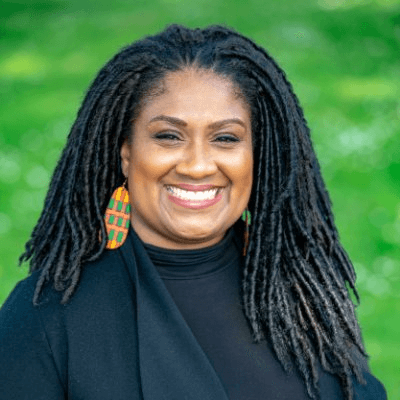The Casey Report

The Met dubbed ‘institutionally racist’ again. This time, they are urged to accept it.
Much has been said about the Casey Report, released earlier this month by Baroness Casey of Blackstock DBE CB March 2023, which details the acknowledgement of institutional racism within the Met despite the Police commissioner, Sir Mark Rowley, refusing to use the word ‘institutional’.
The report discusses the Met’s leadership, recruitment, vetting, training and culture communications. As well as the kind of support that the public should expect from the Police. And a key element is police corruption.
The Black Community knows all about the corrupt members of the police force, so when the report highlights their existence, we are not surprised. However, (as with the white victims in the Ukraine war being awarded more humane treatment and compassion than non-white victims of war) when the victim is white – arguably, things are put into motion a lot faster than when the victim is of a different hue.
Sarah Everard was described as a ‘bright and beautiful woman who was a shining example’ (The Independent - Giordano, Tidman, Mathers) and was kidnapped, raped and murdered in March 2021 by Metropolitan Police Officer Wayne Couzens – a police officer who grossly deviated from his role.
The role of the police in the UK is detailed as a:
service is to uphold the law fairly and firmly; to prevent crime; to pursue and bring to justice those who break the law; to keep the Queen's peace; to protect, help and reassure the community; and to be seen to do this with integrity, common sense and sound judgement. (Expectations on The Police - Parliamentary Business)
Yet both recent and historical history tells us that the police have failed the black community in the UK – from the murder of Mark Duggan in Tottenham London (2011) to Chris Kaba,(2022) an unarmed black man who was shot dead by police in South London.
What we as the Black Community experience is that the Police act as a force to reinforce the White Supremist institution that we live in. Institutional Racism is the ongoing systemic racism of the marginalised non-white communities within this country including the Educational field and our NHS. However, the rape and murder of Sarah Everard places the spotlight firmly on the police triggering the Casey Report.
It can be argued that this institution, like the others, protects and serves this inhumane treatment of marginalised peoples. Even though some changes have taken place since Stephen Lawrence, arguably, there have not been enough. The Met inquiry has shown that police are racist, misogynistic and homophobic- yet this was detailed before in the MacPherson Report.
Inquest is an independent organisation set up to monitor deaths in police custody. Their ongoing casework shows that:
16% of deaths in police custody or otherwise following contact with the police since 1990 are people with Black, Asian and Minoritised Ethnicities (BAME) [and that] people with Black, Asian and Minoritised Ethnicities (BAME) die disproportionately as a result of use of force or restraint by the police, raising serious questions of institutional racism as a contributory factor in their deaths.
“The disproportionality in the use of force against Black people adds to the irrefutable evidence of structural racism embedded in policing practices. ”
Deborah Coles, Director of INQUEST
Analysis of official data by the BBC showed that in the past 10 years 8% of those who died in custody were racialised as Black, despite representing only 3% of the population.

In October 2017 the landmark Independent review of deaths and serious incidents in police custody by Dame Elish Angiolini QC was published. Commissioned by Theresa May when she was Home Secretary, the review called for action in tackling discrimination.
It recognised the disproportionate number of deaths of people from Black, Asian and Minority Ethnic groups following restraint and the role of institutional racism and police training and concluded that the "Deaths of people from BAME communities, in particular young black men, resonate with the black community's experience of systemic racism."
In January 2018, the Independent Office for Police Conduct replaced the Independent Police Complaints Commission. Dame Anne Owers, the outgoing IPCC chair, urged for the relationship between ethnicity and use of force to be looked at closely.
In April 2018, a group of United Nations experts commented on ‘structural racism’ being rooted at the heart of British society. The group of human rights experts cited police data showing a disproportionate number of people from ethnic minorities died as a result of excessive force.
In July 2021, the United Nations High Commissioner on Human Rights, Michelle Bachelet, published a damning report calling on states including the UK to “end impunity” for human rights violations against Black people by police officers and reverse the “cultures of denial” towards systemic racism, particularly in the context of policing and deaths in custody. (https://www.inquest.org.uk/bame-deaths-in-police-custody)
And yet, nothing much has changed. We are still seeing black people being killed disproportionately by police. So, what makes the Casey Report any different from other reports? The Casey report suggests that the Met needs to accept the findings. Baroness Casey commented that:
‘Policing needs to accept that the job can also attract predators and bullies – those who want power over their fellow citizens, and to use those powers to cause harm and discriminate. All of British policing needs to be alive to this very serious risk. (Baroness Casey)
The Metropolitan Police are found again (After the MacPherson Report triggered by the Stephen Lawrence murder) to be institutionally racist, sexist and homophobic. The Casey report also suggests that the Met should also accept that it is institutionally racist. Implying that despite the many reports detailing the Police being just that: institutionally racist, they are yet to accept it.
‘I am unconvinced that police forces are fully alive to that risk, nor that the Met fully understands the gravity of its situation as a whole. If a plane fell out of the sky tomorrow, a whole industry would stop and ask itself why. It would be a catalyst for self-examination, and then root and branch reform. Instead, the Met preferred to pretend that their own perpetrators of unconscionable crimes were just ‘bad apples’, or not police officers at all. (Baroness Casey)
This reinforces what Dr Shola Mos-Shogbamimu (a British-Nigerian lawyer and academic, notable as an activist and political commentator) said on The Jeremy Vine Show:
‘There is a systemic structure in place that protects and preserves this behavioural conduct. The reason why you have the Wayne Couzens [the police officer who murdered Sarah Everard] and the other racist behaviour that you get from Police offices is because people keep wanting to see them as one offs, as just a few bad apples. No. The institution protects itself 1st instead of dealing with the problem.’ - Dr Shola Mos-Shogbamimu
The Casey Report doesn’t tell us in the Black Community anything new about Police behaviour. It reinforces the accusations made in the McPhearson report in 1999 and discusses ‘accepting the challenge.’ Which directly contrasts what Met Police Commissioner, Sir Mark Rowley who still refuses to use the word ‘institutional’ and therefore refuses to fully acknowledge the problem.
‘That starts with everyone accepting the scale of the challenge, no matter how hard that may be. As the Reverend Mina Smallman, the mother of two murdered daughters and another victim of Met officers’ crimes, told me: “What we can’t have is that the only reason that people who corrupt the police are taken in hand is by the tenacity of the women and the families they abused.” 8 Reverend Smallman also told me that: “The strides and the windows that we’ve been able to open into this institution have not come about because of the police’s desire to change. It’s come about on the backs and the tenacity of people of colour and women, and that’s not the way we’re going to affect real change. If you’re constantly trying to cover up the cracks then you’re never going to address anything.”’ (Baroness Casey)
It is the police’s job to keep us safe as the public. Far too many Londoners have now lost faith in policing to do that. Many Londoners, particularly Black Londoners, never had it to begin with. I completely understand why they feel that way.’ (Baroness Casey)
There have been reports that have admitted failings before. And yet we are still to see quantifiable action. The Met police are 82% White and 71% male and the majority of them do not live among us. There has been an argument that we need a police force for us and one that protects us as the current one is not fit for purpose- an idea which at least deserves serious debate.
Many black people have joined this institution to help bring about change and found themselves disillusioned at their lack of influence. Change does need to happen, and it needs to happen swiftly. The white psyche needs fixing. It remains to be seen whether the Met Police and the Met Police Commissioner Sir Mark Rowley will accept the diagnosis provided by Baroness Casey. For it is only by telling the truth and shaming the devil can we begin to affect change. ‘The reason why nothing has changed is because people refuse to call the problem by its given name.’ Dr Shola Mos-Shogbamimu
‘Ultimately, it is the Met that has to change itself.’ (Baroness Casey)
Please find a link to the Casey Report below.























